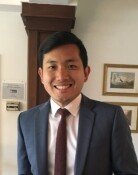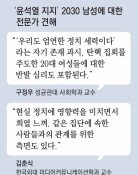[Editorial] Responsibility of the Supreme Court Chief Justice
[Editorial] Responsibility of the Supreme Court Chief Justice
Posted January. 23, 2010 09:00,
Busan District Court senior judge Moon Hyeong-bae, former president of the Woori Law Society, an organization of liberal judges, had said shortly after the appointment of Lee Yong-hoon as Supreme Court chief justice, The Woori Law Society supports the Supreme Court chief justice, and we should not repeat past mistakes since we have joined the mainstream. On his comment, Moon recently said, I said mainstream because that the majority of society support Chief Justice Lees philosophy. This explanation seems to reflect the present atmosphere of the judiciary, in which all is fine if the philosophy of the chief justice is consistent with those of other judges, but if not, judges revolt against the chief justice by saying judicial autonomy is being threatened. In addition, a judge should not comment on whether the courts are mainstream or non-mainstream.
Nowadays, if a controversial ruling is made, people tend to ask whether a judge belongs to the Woori Law Society. The recent series of acquittals on a series of controversial cases, however, were delivered by judges having nothing to do with the organization. Nevertheless, the organization is not free from blame and a close scrutiny shows it is at the center of the controversy.
Woori claims to be an academic organization. Its exclusivity, the political inclinations of its members and their lopsided rulings tell a different story, however. Even Lee told a parliamentary hearing on Sept. 8, 2005, Such an organization should not be allowed in the court. Yet a slew of Woori members has won key posts in government. Park Shi-hwan, the first president of the organization, was appointed chief justice of the Supreme Court, lawyer Kang Kum-sil was named justice minister, and Park Beom-kye served as presidential secretary for civil affairs under the former Roh Moo-hyun administration. Chief Justice Lee took no action against the organization, apparently because he was aware that the Roh administration favored of the organization.
Last year, Supreme Court Justice Shin Young-chul was blamed for allegedly intervening inappropriately in trials after he allocated cases of candlelight vigil protesters to a presiding judge and sent an e-mail to judges to expedite trials. Young judges stood up against Shin, prompting the Supreme Court to probe him and warn him of his actions. Because of this, significant cases including the defamation case involving the investigative TV news program PD Notebook have been assigned to a single judge instead of an appellate court or presiding judge. Also problematic is the system under which a chief judges administrative power of case allocation is challenged and ranking court officials seek the pleasures of ordinary judges and allocate cases haphazardly. Since Shin was warned, performance assessments of judges who have served less than five years have been prohibited to preserve judicial autonomy. Chief Justice Lee is largely responsible for this since he has turned a blind eye to such situations over his 52-month term.
He must first dissolve the Woori Law Society and introduce a system reflecting the assessment of judges in promotion and reassignment. Such a system will never undermine judicial independence at a time when it is fully upheld.






